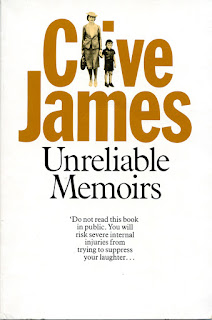In the small collection of items I put aside to blog about at some future time, is an obituary of Iona Opie, children’s folklorist, who died in 2017 aged 94. If this post interests you, you will enjoy her life story.
Her delightful book ‘My Very First Mother Goose’, an illustrated collection of nursery rhymes, gave us hours of fun when the children were little. Bedtime after bedtime, we would turn through the pages, pointing at the pictures, singing the rhymes we knew the tunes to, and reciting those we didn’t. Now in a box of books in the loft, it is definitely not one to be disposed of.
Amongst my favourites to sing were:
Half a pound of tuppenny rice
I had a little nut tree
Pussy-cat, pussy-cat, where have you been
Elsie Marley’s grown so fine, she won’t get up to feed the swine
Dickory, dickery, dock
Sing a song of sixpence
Hey diddle, diddle, the cat and the fiddle
Ride a cock ‘oss to Banbury Cross
(we are certainly not going to sing ‘cross’ to rhyme with ‘horse’ in Yorkshire)
Horsie, horsie, don’t you stop
Boys and girls come out to play
Jack and Jill
Pat-a-cake, pat-a-cake
Down at the station early in the morning
Wee Willie Winkie
We probably enjoyed it more than the children.
“I don’t like that Wink Willie Wee-Wee,” son J said one day.
Iona Opie, with her husband Peter, began collecting nursery rhymes during the war when, one day out walking in the countryside, the rhyme “Ladybird, ladybird, fly away home / Your house is on fire, your children all gone,” came into her head. She wondered what it meant and where it had come from. Nursery rhymes had never been codified before. From scratch, they unearthed a rich vein of children’s rhymes, traditions and folklore that had been passed down through generations, which they sought to record before it was erased by the commodification of childhood.
As in “Ladybird, ladybird”, many hint at untold horrors. The Opies suggested this was uniquely British, “All part of being frightfully tough and not minding the weather; we’re nourished with this nonsense and it does us a lot of good.”
With us, the rhymes took on a life of their own, with changed words and new verses. “Down at the station” acquired a second verse in a minor key:
Grandson and -daughter1 wave goodbye to Grandma,
She’s on the train, she’s on her way home,
Ten minutes later a face at the window,
“Hello, it’s me, I’m baaack2 again.
1 their actual names were used here
2 exaggerated southern accent
The odd thing about this is that it is not entirely true. Our extra verse refers to an incident that occurred before either of the children was born.
Grandma used to travel up from the South on the main line to Sheffield and then take a local train through Barnsley. She was appalled by the thought that any future grandchildren might grow up with Barnsley accents.
On this particular day, we saw her off home on the local train, but she returned an hour or so later and knocked on the window. What had happened is that, just outside our station where the line becomes single-track, the driver of the train coming in the opposite direction stopped to inform Grandma’s driver about a broken joint in the track which had allowed him to pass but would have derailed Grandma’s train. Grandma’s driver then had to wait for permission to reverse back to our station.
How many of our traditional rhymes are similarly muddled?
Iona and Peter Opie (rhymes with ‘soapy’) published several other books, including ‘The Oxford Dictionary Of Nursery Rhymes’. We also bought ‘Here Comes Mother Goose’ which is in the same Walker Books series as ‘My Very First Mother Goose’, but most of the rhymes are unfamiliar to us.






























